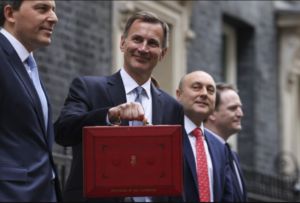In his second autumn statement, Chancellor Jeremy Hunt outlined a series of key measures aimed at steering the economy back on track. Focused on growth, tax cuts, and responsible spending, Hunt’s proposals are designed to reward hard work, boost business, and address pressing economic challenges. Let’s delve into the key points unveiled during this critical announcement.
1. Personal Tax Cuts:
Chancellor Hunt prioritizes rewarding hard work by announcing a reduction in the main employee national insurance contributions rate from 12% to 10%. This tax cut, effective from January 6, 2024, is anticipated to impact 28 million individuals, saving the average earner £450 annually. This move aligns with the government’s commitment to eradicating low pay and stimulating immediate financial relief for workers.
2. Public Spending:
With a commitment to a responsible approach, Hunt emphasizes tackling waste in government spending. The Office for Budget Responsibility (OBR) projects a £19 billion reduction in public service spending, adjusted for inflation. However, this approach has sparked concerns from critics who argue that years of underfunding have left public services at the brink.
3. Economic Growth:
Hunt leverages OBR forecasts, indicating a 0.6% and 0.7% growth in the economy for the current and next years, respectively. Despite challenges, the economy is now 1.8% larger than pre-pandemic levels. The Chancellor’s announcement of 110 growth measures aims to further elevate business investment, reduce inflation, and increase GDP in the coming years.
4. Inflation Management:
Inflation is expected to decrease to 2.8% by the end of 2024, down from last year’s 11.1%. Hunt acknowledges the challenge of higher inflation persisting until mid-2025, impacting interest rates. This revelation serves to highlight the government’s commitment to economic stability amid global challenges.
5. Wages, Benefits, and Welfare Reforms:
Chancellor Hunt unveils significant welfare reforms, aiming to get 200,000 more people into work. The “national living wage” will increase by over £1 per hour, extended to 21-year-olds. Benefits will see a 6.7% increase, coupled with tougher work requirements. The state pension is set to rise by 8.5%, and the local housing allowance, frozen since 2020, will see an £800 increase for some households.
6. Borrowing and Debt Management:
Hunt addresses the national debt, stating that headline debt is projected to be 94% of GDP by the forecast period’s end—lower than previous estimates. However, critics note concerns about meeting debt reduction targets, especially if fuel duty remains frozen.
7. Business Tax and Economic Investment:
The Chancellor introduces permanent full expensing for businesses, enabling tax offsets for investments. Business tax cuts and targeted measures for the hospitality, retail, and leisure sectors are applauded, signaling the largest business tax cut in modern British history. Additionally, an extra £4.5 billion investment in manufacturing, a new “investment zone” in Wrexham, and plans to explore NatWest’s stake sale underscore the government’s commitment to economic development.
Conclusion:
Chancellor Hunt’s autumn statement sets the stage for economic recovery and growth, emphasizing responsible spending, tax cuts, and strategic investments. While some measures face scrutiny, the overall direction aims to position the UK for a brighter economic future. As the political landscape evolves, these initiatives will likely be central to the discourse leading up to the next general election.

Leave a Reply Cancel reply